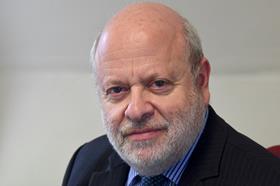You’ve doubtless heard the theory that all stories can be broken down into a half a dozen basic plot-lines.

But has there ever been a theory that every human has only three ideas? If not, let me be the first to propose it. If you read columnists in popular newspapers, you soon see it: Harry and Meghan are responsible for earthquakes; wokeism threatens civilisation; and whichever minor celebrity is in the news deserves a thorough thrashing. Week after week, the same articles appear in rotation, because the writers’ brains are limited to three.
I struggle against the rule of three. I want to have four, five, six – but it is very difficult. I try to ensure, though, that my three change regularly. None of them has ever touched on Harry and Meghan, and as soon as the issues begin to be resolved, I move on. My current three are the following (I do think about other things, too – I promise):
One: the hidden part of international arbitration needs to be brought into the light. International arbitration is a great success story for our legal system. It provides work and profit not only because our lawyers make outstanding arbitrators and counsel before arbitration, but because our structures are trusted and many contracts have jurisdiction clauses which send disputes to us. But there are complaints about aspects of arbitration, which are not sufficiently publicly discussed among lawyers and are ignored by the bars.
First, lawyers involved in investor-state dispute settlement cases (ISDS) have been subject to serious complaints for years at the highest level (conflicts of interest, pro-investor biases, revolving doors and double-hatting), yet this appears to be completely unknown to their professional bodies or the wider profession, despite generating such poor publicity.
Second, we should be conscious that our great and deserved success comes at the expense of others, primarily lawyers in developing countries who find that the arbitration of their big commercial disputes takes place thousands of miles away, and is argued by lawyers from another jurisdiction under a law which is not their own.
Two: The numbers of solicitors based outside England and Wales is growing all the time. Over the last 10 years, the number grew by 43%, and, over the last year of recorded statistics, the share in the number of practising certificates increased by 1.1% to 7.1%. The number of such solicitors now stands at 11,212. Outside London (where the largest number of solicitors work), it is the third highest grouping.
Yet these solicitors do not participate in Law Society affairs. A tiny handful are members of a couple of committees, but no more. Given that so much of modern business is now transacted online, including in hybrid meetings, a habit shared at the Law Society, there is no reason why solicitors based anywhere in the world should not participate in the policy-making and networking activities that the Law Society offers (provided that time zones can be accommodated). So, come on, solicitors from abroad: join in, we need you!
Three: AI, and in particular generative AI, poses a great threat to lawyers and our regulation, for a number of reasons. Yes, used by lawyers it may be a great boon, but the AI companies are already offering services directly to consumers. There are dangers ahead.
First, it is being trained through scraping our law firms’ websites, among other things. Each law firm may think individually that there is no harm with AI swallowing up its material, but collectively the stolen items will ensure a powerful mechanical competitor.
And, second, AI will be regulated in time, whatever our government now says about a light touch so as not to stifle innovation; the EU and US have already set off down the regulatory path. And when it is regulated, it will be regulated by our government. It is too powerful for our national regulators to cope with, and its owners are almost exclusively based outside the UK. If the government assumes regulation of AI legal services, there will be dual regulation of us and machines, which will cause problems ahead.
I am pleased to see that parts of this challenge are now being tackled – for instance, see the Gazette article last week on the topic. So I am in the process of hunting down a third big idea, to keep my stock replenished.
I have a colleague whose three ideas are quite different to mine. She would list the following. First, the Solicitors Regulation Authority should stop adding new burdens on solicitors which are not contained within the rules. Second, the Law Society should stick to the basics, and not be swayed by political flavours of the month. And third, the movement by CILEX to be regulated by the SRA should be resisted vigorously.
Since neither of us mention the royal family, we have no hope of getting jobs as columnists in the popular press.
Jonathan Goldsmith is Law Society Council member for EU & International, chair of the Law Society’s Policy & Regulatory Affairs Committee and a member of its board. All views expressed are personal and are not made in his capacity as a Law Society Council member, nor on behalf of the Law Society































5 Readers' comments